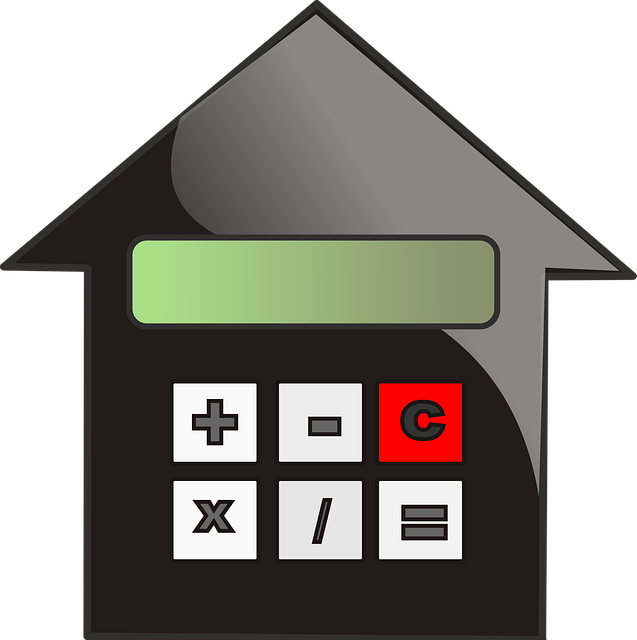Debt consolidation loan brokers simplify managing multiple debts by finding tailored loan options based on individuals' financial situations. They match borrowers with suitable lenders, secure favorable terms including lower interest rates and larger borrowing limits, especially for those with good credit scores. Brokers help navigate the process, consolidating high-interest debts to free up cash flow and speed up repayments, offering solutions for various debt types like student or business loans. Assessing current debt situation, comparing options, and focusing on lowest overall interest rate maximize savings through debt consolidation.
Considering debt consolidation? You’re not alone. Many are looking for a way to simplify their finances by combining multiple debts into one. This article serves as your guide through the process, starting with understanding debt consolidation loans and the crucial role a debt consolidation loan broker can play. We’ll explore key factors affecting borrowing capacity, credit score considerations, various consolidation options, and how to calculate potential savings and repayment terms.
- Understanding Debt Consolidation Loans
- Role of a Debt Consolidation Loan Broker
- Factors Affecting Borrowing Capacity
- Credit Score and Loan Eligibility
- Different Types of Debt Consolidation Options
- Calculating Repayment and Savings
Understanding Debt Consolidation Loans

Debt consolidation loans are a popular strategy for individuals burdened by multiple debts. This type of loan involves taking out a single, larger loan to pay off all existing debts, streamlining repayment and potentially saving money on interest rates. The key advantage lies in simplifying the debt repayment process, making it easier to manage monthly payments instead of dealing with several lenders.
When considering a debt consolidation loan, individuals often turn to brokers who specialize in connecting borrowers with lenders. A debt consolidation loan broker can be invaluable, especially for those new to managing debts. They help navigate the market, compare rates and terms from various lenders, and find the best fit based on individual financial situations. Understanding how does debt consolidation work is crucial, as it involves evaluating the interest rates, repayment periods, and any associated fees to ensure a fix high credit card rates solution that aligns with entrepreneurial debt relief solutions.
Role of a Debt Consolidation Loan Broker

A debt consolidation loan broker plays a pivotal role in helping individuals navigate the complex landscape of consolidating their debts. These brokers are professionals who specialize in matching borrowers with suitable lenders offering debt consolidation loans. They understand the intricate details of various loan options, including those tailored for folks dealing with bad credit. By assessing an individual’s financial situation, including their income and existing debts, a broker can recommend the most appropriate loan type to enhance their chances of getting approved.
Moreover, they guide borrowers through the application process, ensuring all necessary documents are in order. This is particularly beneficial when considering that debt consolidation and credit score impact go hand in hand. A broker’s expertise can help borrowers secure loans with favorable terms, enabling them to get out of debt faster by consolidating multiple high-interest debts into a single, more manageable payment.
Factors Affecting Borrowing Capacity

When considering a debt consolidation loan broker for merging your debts, several factors influence your borrowing capacity. Your credit score plays a significant role; lenders typically offer lower interest rates and more favorable terms to borrowers with excellent credit. A strong credit history demonstrates your reliability in repaying loans, increasing your chances of securing a better deal.
Additionally, your income and existing debt obligations are crucial considerations. Lenders assess your ability to manage monthly payments by evaluating your disposable income after essential expenses. A stable income and manageable current debt levels can enhance your borrowing power, allowing you to access more substantial consolidation loan amounts. Exploring options like consolidating private student loans or small business debt through specialized brokers can provide tailored solutions for unique financial scenarios.
Credit Score and Loan Eligibility

Your credit score plays a significant role in determining how much you can borrow for a debt consolidation loan. Lenders use your FICO score to assess your creditworthiness, and a higher score generally means access to lower interest rates and larger borrowing limits. While there’s no magic number, maintaining a credit score above 700 is advisable for the best chances of securing favorable loan terms. This is because lenders perceive borrowers with scores in this range as less risky.
When exploring debt consolidation options through a reputable debt consolidation loan broker, remember that eligibility goes beyond credit scores. Lenders will also consider your income, existing debts, and the type and amount of unsecured debt consolidation funding you seek. A broker can help you find the best low-interest debt consolidation loans tailored to your financial profile, ensuring you get the most suitable repayment terms for your situation.
Different Types of Debt Consolidation Options

Debt consolidation offers a structured approach to managing multiple debts by combining them into one single loan with a lower interest rate and potentially more favorable terms. There are various options available, each catering to different financial needs and situations. One popular choice is a debt consolidation loan broker, which acts as an intermediary between borrowers and lenders. These brokers specialize in helping individuals secure loans tailored to their debt burden and credit profile. They provide access to a network of lenders, allowing borrowers with good or bad credit to find suitable financing options.
Understanding how does debt consolidation work is essential when exploring these choices. The process typically involves consolidating multiple debts, such as credit cards, personal loans, and even mortgages, into one loan. This simplifies repayment by replacing several monthly payments with a single, manageable payment. For those looking to fix credit card debt fast, debt consolidation can offer a way out of high-interest traps, providing much-needed financial relief.
Calculating Repayment and Savings

When considering a debt consolidation loan broker, calculating repayment and savings is crucial. The first step involves assessing your current debt situation. List all your existing loans, credit cards, and their corresponding interest rates. This data will help determine the best approach for consolidating your debts. By comparing different consolidation options, you can choose the plan that offers the lowest overall interest rate, which significantly impacts your long-term savings.
A key benefit of debt consolidation for multiple loans is reduced monthly payments and fixed high credit card rates. It allows you to simplify your financial obligations by combining them into a single loan with a potentially lower interest rate than your current cards. This can free up cash flow, making it easier to stick to a repayment plan and avoid further accumulation of debt.
Debt consolidation can be a powerful tool for managing and reducing your debts. Understanding your borrowing capacity is crucial, especially when considering a debt consolidation loan broker. By evaluating factors like credit score and exploring various debt consolidation options, you can make an informed decision to simplify your finances and save money on interest rates. Remember, the right loan type and broker can help you consolidate your debts effectively, leading to financial freedom.
